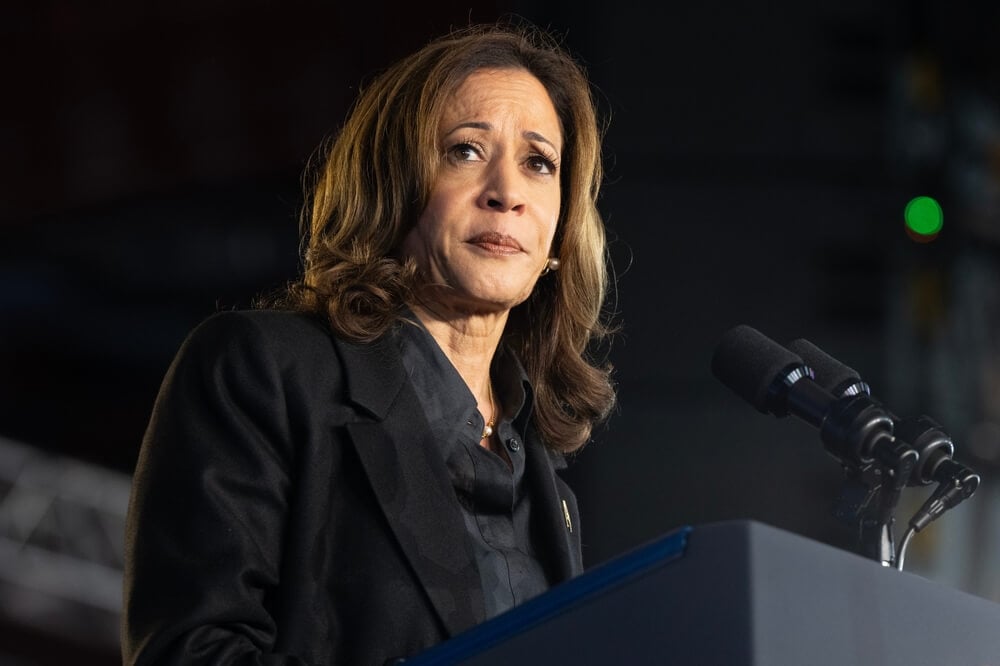US President Joe Biden proudly pointed out in front of the world leaders at the UN that he fulfilled his legacy from the beginning of his mandate when he said that he would withdraw the US from "forever wars" around the world.
"I was determined to end it, and I did," said President Biden in his last speech before the UN General Assembly, referring to the American withdrawal from Afghanistan at the beginning of his presidency.
It was at times an emotional performance by the leader who is leaving after more than 50 years at the centre of global politics, a heavyweight of American diplomacy throughout recent history.
The departure from the stage of one of the last living global leaders, however, did not impress many among the statesmen in the audience.
Their biggest concern was who would speak on behalf of the US at the UN next September, at the 80th General Assembly—Kamala Harris or Donald Trump?
A remarkable sweep of history
Biden's speech was a summary of his administration's foreign policy, in which the shift regarding withdrawal from war zones, starting with Afghanistan, occupied an important place.
Although he rightly said that in the meantime "he has seen a remarkable sweep of history," President Biden did not make the connection between the foreign policy shift he promoted with Afghanistan at the beginning of his term and the sweep of history that followed.
Several of the biggest global crises, about which all previous speakers at the UN have shown extreme concern, have their roots closer or further back even before Biden's presidency.
But they all escalated into brutal wars with thousands of dead or to the level of the highest tensions during Biden's watch—Ukraine, the Middle East, the South China Sea, Sudan, the Sahel.
Biden has largely succeeded in removing the US from the isolationism that his predecessor Trump pushed it into, and his efforts are most evident in trade relations and security coalitions.
The US left behind a political and security vacuum in the main global neuralgic points, which autocracies started to fill by force
But even the farewell speech before the UN confirmed that in the past four years, the US left behind a political and security vacuum in the main global neuralgic points, which autocracies started to fill by force.
They felt encouraged by Biden's doctrine of withdrawing from direct involvement in crises and war zones. It was certainly an important factor for Putin to decide to invade Ukraine, for Tehran to launch its proxies in actions against Israel, for China to escalate its security threats in the Pacific, for coups to break out in sub-Saharan Africa, followed by the expulsion of American and European troops.
Face-to-face with Zelensky
At the UN, President Biden promised continued strong support for Ukraine. "We will not let up on our support for Ukraine. Not until Ukraine wins a just and durable peace," said the American president, while Ukrainian leader Volodymyr Zelensky listened to him from the audience.
But these were less important words for Zelensky. He will give President Biden the opportunity to confirm his promises in action on Thursday, when the Ukrainian leader will hand him the demands that he believes can lead to the near end of the war in favour of Ukraine.
Biden's speech at the UN is a summary of the uneasy foreign policy legacy he will leave to his potential White House successor, Kamala Harris
Of course, the most important is US approval for the Ukrainian army to use already-delivered long-range missiles for attacks on Russian military and energy infrastructure deeper in its territory.
Biden's speech at the UN is a summary of the uneasy foreign policy legacy he will leave to his potential White House successor, Kamala Harris.
Indecision and defensiveness before the elections
Indecision and defensiveness are the key words that follow Biden's foreign policy, used by not only Republican opponents but also some important American allies globally.
"The values the West claims to defend are dying, the truth is dying, and the hopes of humanity to live in a more just world are dying—one by one," said one of those allies, Turkish leader Recep Tayyip Erdoğan, also at the UN.
 Kamala Harris hasn't yet said how exactly she would resolve the many foreign policy problems the United States faces
Kamala Harris hasn't yet said how exactly she would resolve the many foreign policy problems the United States faces
In the context of the forthcoming presidential elections, according to whose standards Biden's speech at the UN was designed to some extent, it will be much more important whether Kamala Harris will remain on her boss's foreign policy course or whether she will dare to offer changes.
"Harris hasn't yet said how exactly she would resolve the many foreign policy problems the United States faces, including the Israeli-Palestinian conflict. Though she opposes an arms embargo on Israel, she has not indicated if as president she would maintain all of Biden's policies," said Kelebogile Zvobgo from the Brookings Institute.
The opposing camp harshly criticised Biden's entire foreign policy, and regarding his speech at the UN, Michael McCaul, House Foreign Affairs Committee Chairman, said that Biden is leaving the world "far more dangerous" than when he came to the White House.
Foreign policy will not be a major focus of American voters when making a decision on a new president in November, but it will play a role everywhere outside the US.
Biden's farewell speech in front of world leaders in New York does not indicate that the current administration, if it remains the same after November, will bring major changes in the foreign policy course. At least, neither he nor his vice president have provided evidence to the contrary.